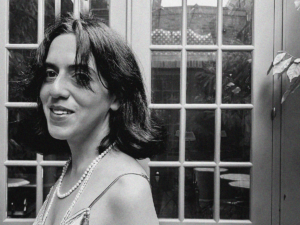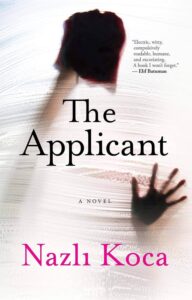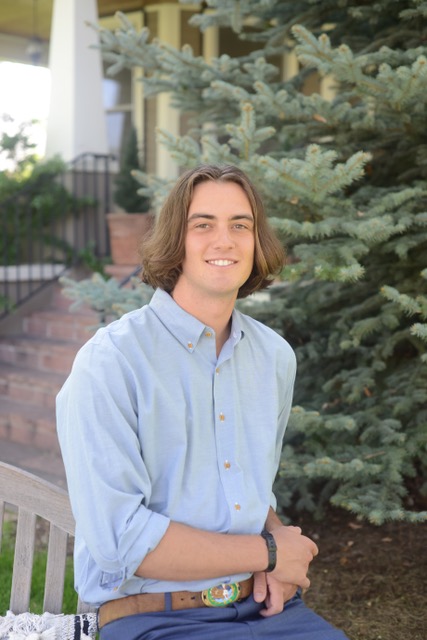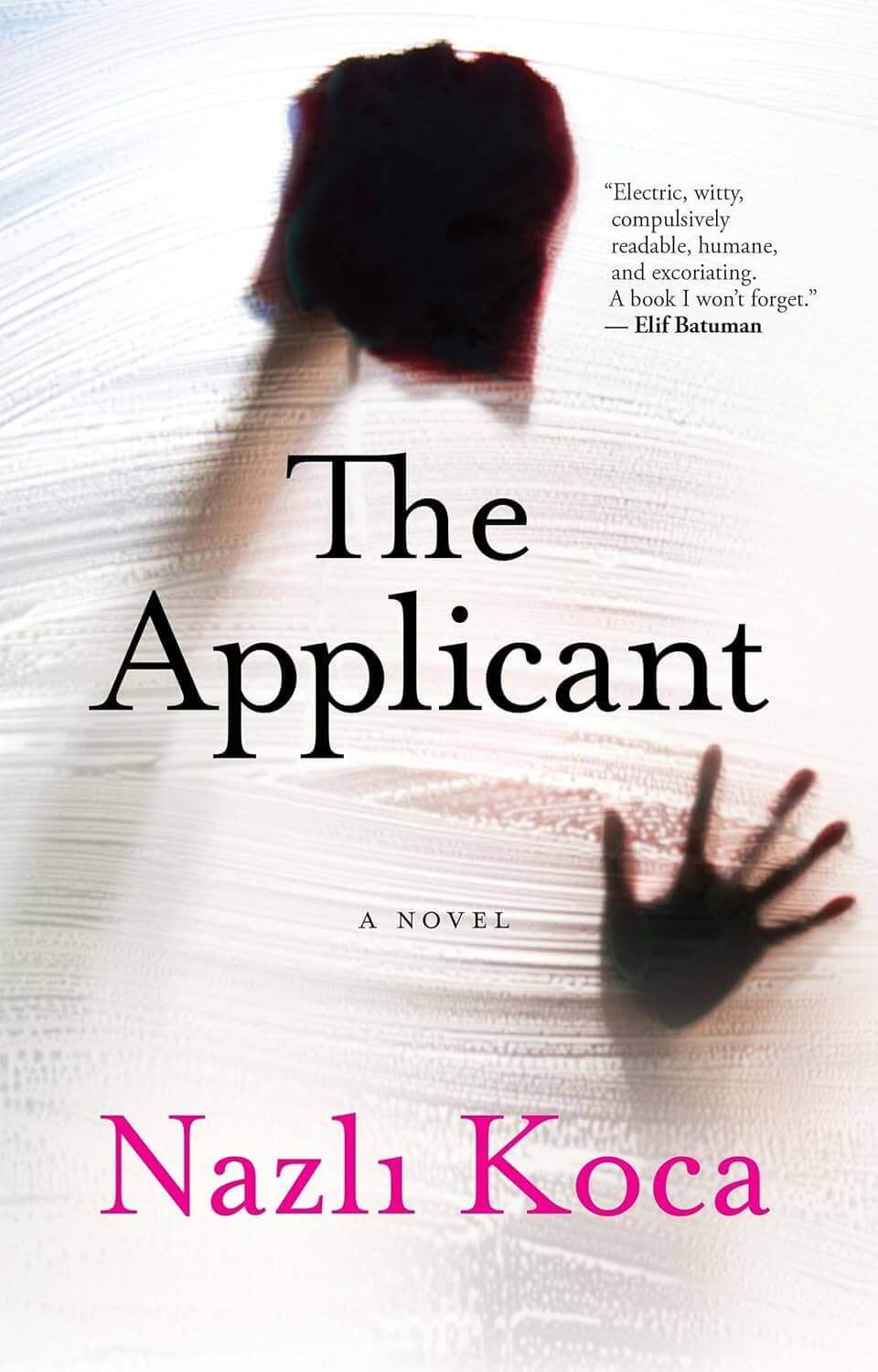What does she want?
The Applicant chronicles an artist, an immigrant, a student’s search for definition
The Applicant chronicles an artist, an immigrant, a student’s search for definition
For all its apparent simplicity, the question “What do I want?” is well-known to yield answers which are anything but simple. It is in the midst of this complexity that we come to know Leyla, the voice behind the eight-month span of diary entries that comprise Nazli Koca’s debut novel, The Applicant. Guided by the question “What do I want?” Leyla attempts to understand herself, her myriad identities, her relationships, her art and her desired future.

Nazli Koca
Koca, now based in Denver, was awarded the 2024 Colorado Book Award for The Applicant, among widespread high praise for the book, first released in 2023, and now in paperback.
The largest through-line of The Applicant is Leyla’s endless interrogation of the possibilities of where life may take her. The reader finds Leyla in the opening pages beginning work as a cleaner in an Alice in Wonderland-themed hostel in Berlin. It quickly becomes apparent that this is not the only world she occupies: she is a former student who has failed her thesis and lost her visa status; she is a writer with ambition but paralyzed by her own inaction and expectations. She is a drifter in Berlin’s black-hole party scene. She is a Turkish Immigrant. She is a Berliner, a friend, a daughter.
The reader tracks these splits in Leyla’s self-identification through in-depth reflections on these dichotomies. She grapples with the loss of her student status and her relegation to minimum wage work—necessary for her survival on a soon-to-expire Fiktionsbescheinigung (fictional certificate) but threatening to her artistic ambitions. She questions what allegiance she owes to her family in her native Turkey—a world stained for her by conservative thinking, abusive men and fathers, political violence and state censorship—the gravity of which she always feels as she clutches to the independence she finds in liberal Berlin. Leyla deepens these forays into her inner being, exploring nuances of gender and racial politics, her own sexual liberation and its instability, and the realization that where her life will lead her is not entirely in her control.
More than any of her identities, Leyla is a character defined by this constant interrogation. She is a seeker. The strength of the novel lies in this fact and in Koca’s determination to not let the reader off easy with clear answers. Like Leyla, we are plied with ambiguity, left to ponder the questions she asks of herself and to feel the stresses that threaten to pull her away from the life she desires. What results is a wholly relatable and sympathetic character, rendering a familiar struggle for identity and autonomy with true-to-life feeling.
In the backdrop of Leyla’s self-searching, Koca renders a vivid picture of modern life in Berlin. The  narrative sweeps the reader into the flashing dark of the city’s ever-present clubs where we find Leyla engaging with both pleasure and measured guilt in the hedonism offered there. We participate with her in the shallow intimacies of toilet stall drug use, casual darkroom sex and the feelings of exhaustion and liberty that accompany an 18-hour rave. Outside the parties Leyla dips in and out of the city’s vapid and capital-C Cool art scene, offering us an often-comical glimpse of the characters that populate it. She interviews Berlin artists in a bar owned by a self-absorbed and fickle man she suspects is pushing her out of her own project. We find her in the U-bahn, yo-yoing the train lines with a female empowerment influencer who, despite what her Instagram would tell you, has been living at her mother’s house in Poland, reusing old footage to keep appearances. Leyla wonders what place she occupies among these people, whose lives she seems to view with a hue of envy, despite their ridiculousness.
narrative sweeps the reader into the flashing dark of the city’s ever-present clubs where we find Leyla engaging with both pleasure and measured guilt in the hedonism offered there. We participate with her in the shallow intimacies of toilet stall drug use, casual darkroom sex and the feelings of exhaustion and liberty that accompany an 18-hour rave. Outside the parties Leyla dips in and out of the city’s vapid and capital-C Cool art scene, offering us an often-comical glimpse of the characters that populate it. She interviews Berlin artists in a bar owned by a self-absorbed and fickle man she suspects is pushing her out of her own project. We find her in the U-bahn, yo-yoing the train lines with a female empowerment influencer who, despite what her Instagram would tell you, has been living at her mother’s house in Poland, reusing old footage to keep appearances. Leyla wonders what place she occupies among these people, whose lives she seems to view with a hue of envy, despite their ridiculousness.
For its successes in creating set and setting, The Applicant’s ruminations can also be self-serious or heavy-handed. Many of Leyla’s entries end with or are qualified by a series of questions she poses herself. These questions and their frequency can occasionally distract from the novel’s moments of poignancy. In these and other small moments during which Leyla’s reflectivity feels pushed a hair too far, the reader may wish for a more formal subtlety and for Koca’s trust that we are able to meet her halfway.
Overall, however, the meditation of The Applicant is rich. In its most forceful moments, the novel can make the reader feel as though Leyla’s confusion, grief, happiness and growth are their own. We are shown a character in a critical period of her life from which there is no easy or painless escape, who ultimately has the determination not to overcome the multiplying uncertainties of her life but to make space for them and to live well in spite of them. Leyla faces the question of “What do I want?” in all its reality and ugliness, and perhaps pushes the willing reader to do the same.
James McCurdy is a lifelong resident of the Rocky Mountains. Developing an interest in literature from an early age, McCurdy has continued to be engaged in the world of letters through his formal education, earning a dual BA in English Literature and Neuroscience. In his professional life, James has worked as a carpenter, a construction engineer and a grant writer. Through these diverse career choices, he has maintained a love of language and scholarship and is currently pursuing a Master's of English Literature at Freie Universität Berlin.
Click here for more from James McCurdy.

